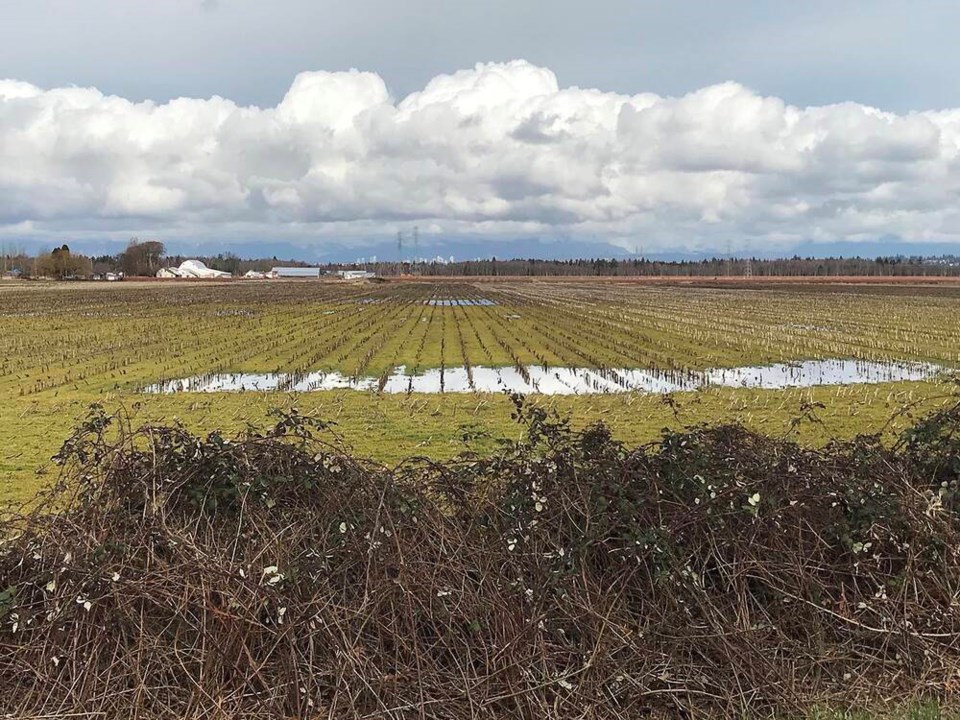The Delta Farmer’s Institute (DFI) and a city advisory committee want the province’s help to protect local agricultural lands.
The DFI is requesting a meeting with the Minister of Agriculture and Food and the Minister of Land, Water and Resource Stewardship, as well as financial support, for drainage and irrigation infrastructure improvements necessary to combat the effects of climate change.
The Agriculture and Hunting Regulation Advisory Committee passed a motion requesting provincial support for drainage and irrigation measures, following a recent update from DFI members who want to bring provincial attention to the issue.
“Our organization represents over 100 multi-generational farmers contributing to the agricultural industry. The annual farm gate receipts of (an estimated) $300 million come from a wide variety of business operations; field vegetables, potatoes, berries, greenhouses, dairy farms, livestock farms, and specialty product. It can’t be overstated the importance of infrastructure and mitigation planning to ensure the sustainable livelihood for the next generation of farmers and resiliency for local food production,” DFI president Jack Bates said in a letter to the province.
Delta council at its Oct. 23 meeting supported the motion and agreed to also make the request to government.
A staff report notes that while Delta has some of the best biophysical conditions for agricultural production in Canada, climate change has emerged as a threat to the long-term viability of agriculture in the community.
“During consultation with Delta’s agricultural sector as part of the Agricultural Plan process, there was a high degree of concern over potential loss of agricultural land to flooding, changes in spring freshet, challenges in maintaining drainage ditches, impacts to crop viability due to excessive salinity in irrigation water and extreme heat, and erosion of ditches as water levels fluctuate. This past summer, climate change especially impacted Delta farmers,” the report notes.
The report also notes that the early freshet this year resulted in the Fraser River salt wedge extending up the river further than expected, which was then exasperated by drought, impacting irrigation through excess salinity and reduced water availability.
Significant costs were incurred to employ temporary measures, including installing pumps and deployment of city engineering staff, costs covered by the City of Delta.
“These efforts were successful in providing additional irrigation waters during a critical time and similar efforts may be needed in the future to address the changing climate,” the report added.
Thanking engineering staff for coming up with measures “on the fly” to get water through Delta’s farming areas, Coun. Alicia Guichon during this week’s council meeting said the department played in a big role in salvaging the season.
Delta South MLA Ian Paton in the legislature recently commented on issues facing B.C. farmers including, among other challenges, severe weather and its lingering effects.



